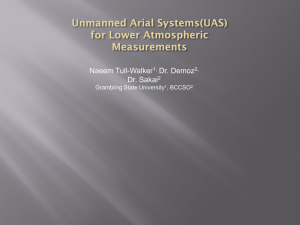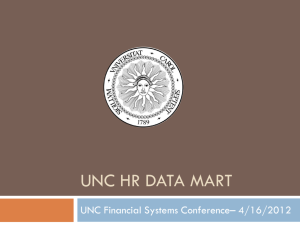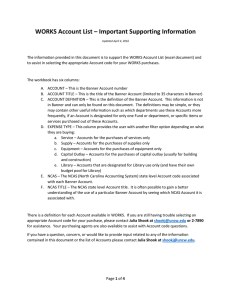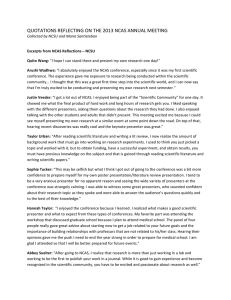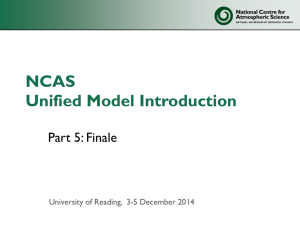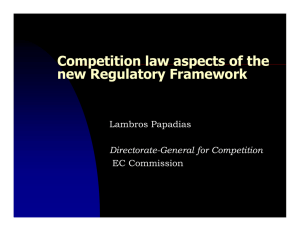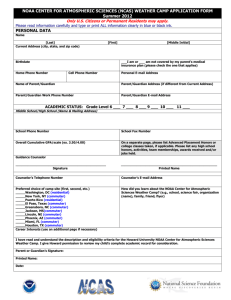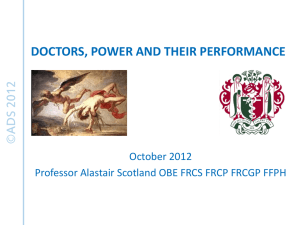Example: Research Staff
advertisement
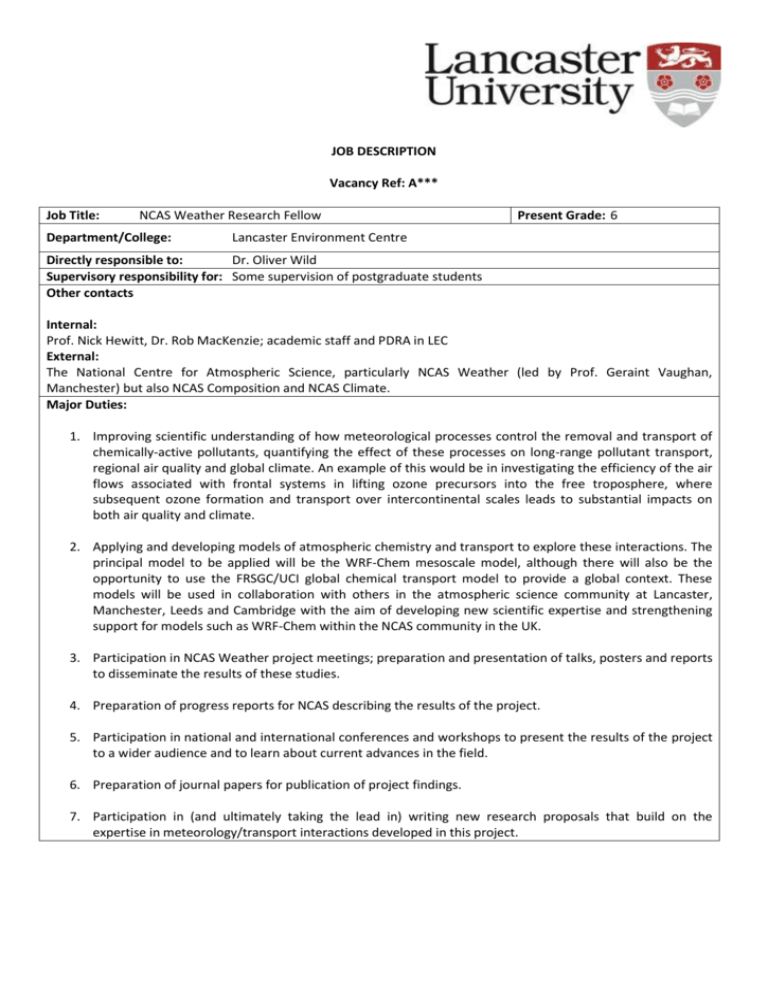
JOB DESCRIPTION Vacancy Ref: A*** Job Title: NCAS Weather Research Fellow Department/College: Present Grade: 6 Lancaster Environment Centre Directly responsible to: Dr. Oliver Wild Supervisory responsibility for: Some supervision of postgraduate students Other contacts Internal: Prof. Nick Hewitt, Dr. Rob MacKenzie; academic staff and PDRA in LEC External: The National Centre for Atmospheric Science, particularly NCAS Weather (led by Prof. Geraint Vaughan, Manchester) but also NCAS Composition and NCAS Climate. Major Duties: 1. Improving scientific understanding of how meteorological processes control the removal and transport of chemically-active pollutants, quantifying the effect of these processes on long-range pollutant transport, regional air quality and global climate. An example of this would be in investigating the efficiency of the air flows associated with frontal systems in lifting ozone precursors into the free troposphere, where subsequent ozone formation and transport over intercontinental scales leads to substantial impacts on both air quality and climate. 2. Applying and developing models of atmospheric chemistry and transport to explore these interactions. The principal model to be applied will be the WRF-Chem mesoscale model, although there will also be the opportunity to use the FRSGC/UCI global chemical transport model to provide a global context. These models will be used in collaboration with others in the atmospheric science community at Lancaster, Manchester, Leeds and Cambridge with the aim of developing new scientific expertise and strengthening support for models such as WRF-Chem within the NCAS community in the UK. 3. Participation in NCAS Weather project meetings; preparation and presentation of talks, posters and reports to disseminate the results of these studies. 4. Preparation of progress reports for NCAS describing the results of the project. 5. Participation in national and international conferences and workshops to present the results of the project to a wider audience and to learn about current advances in the field. 6. Preparation of journal papers for publication of project findings. 7. Participation in (and ultimately taking the lead in) writing new research proposals that build on the expertise in meteorology/transport interactions developed in this project.

